Frontpage News (3259)
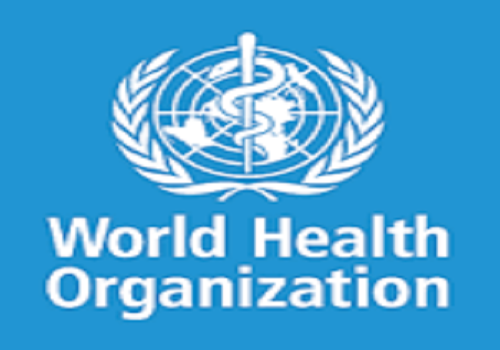 The World Health Organisation (WHO) said on Thursday that cancer killed no fewer than 8.8 million people every year. According to figures from WHO, each year, 8.8 million people die from cancer, mostly in low- and middle-income countries.
The World Health Organisation (WHO) said on Thursday that cancer killed no fewer than 8.8 million people every year. According to figures from WHO, each year, 8.8 million people die from cancer, mostly in low- and middle-income countries.
The figure WHO said is so high that is accounts for two and a half times more people killed than those who die from HIV and AIDS, tuberculosis and malaria combined.
 Oyo State government has said that it is to flag off its free ambulance and mobile healthcare services as part of its holistic approach to ensuring a robust health care service in the state.
Oyo State government has said that it is to flag off its free ambulance and mobile healthcare services as part of its holistic approach to ensuring a robust health care service in the state. Federal government has cited a GeneXpert machine to help detect cases of tuberculosis in the newly opened model primary health care centre at Kuchingoro, a slum neighbourhood of Abuja.
Federal government has cited a GeneXpert machine to help detect cases of tuberculosis in the newly opened model primary health care centre at Kuchingoro, a slum neighbourhood of Abuja.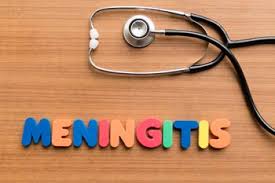 The Nigeria Centre for Disease Control (NCDC) has partnered with the National Primary Health Care Development Agency (NPHCDA) to implement reactive Cerebrospinal Meningitis (CSM) vaccination in states that have crossed epidemic threshold.
The Nigeria Centre for Disease Control (NCDC) has partnered with the National Primary Health Care Development Agency (NPHCDA) to implement reactive Cerebrospinal Meningitis (CSM) vaccination in states that have crossed epidemic threshold.
The Centre, in its weekly report stated that almost 2000 suspected cases of meningitis have been reported with 269 deaths in 15 states across Nigeria. The report revealed that, confirmed cases are being treated at identified treatment centres in two states (Zamfara and Katsina) as necessary supportive management also instituted and request has been made to the NPHCDA for reactive vaccination campaign in Zamfara State.
 Following allegations of financial improriety leveled against the National Orthopedic Hospital, Igbobi Lagos, the House of Representatives Committee on Public Accounts on Monday, set up an ad hoc panel consisting of some members of its members to look into it.
Following allegations of financial improriety leveled against the National Orthopedic Hospital, Igbobi Lagos, the House of Representatives Committee on Public Accounts on Monday, set up an ad hoc panel consisting of some members of its members to look into it.
The allegations, according to a query from the Office of Auditor General of the Federation to the House, includes the unclear destruction of 86 different types of drugs costing N406, 103. 90k expired in 2011 and the controversial offsetting of medical bills in the hospital, totalling N638, 380.
 The United Nations Children Fund (UNICEF), said it has trained 24 health workers in Borno, on measures to prevent malnutrition among Internally Displaced Persons (IDPs) in the state.
The United Nations Children Fund (UNICEF), said it has trained 24 health workers in Borno, on measures to prevent malnutrition among Internally Displaced Persons (IDPs) in the state.
UNICEF Nutrition Specialist, Mr Walton Beckley, said this on Thursday at the closing of a workshop on malnutrition for health workers in Internally Displaced Persons (IDP) camps in Maiduguri.
 President Muhammadu Buhari on Wednesday changed a plan by which he was due to return to London this weekend for another round of medical treatment, barely two weeks after his return from a hospital there. Instead, his doctors will be arriving on Friday to carry out further medical examination on him. Sources at the Presidency informed SaharaReporters that the president’s advance party had already left Abuja earlier in the day by Ethiopian Airlines before they were recalled to Abuja.
President Muhammadu Buhari on Wednesday changed a plan by which he was due to return to London this weekend for another round of medical treatment, barely two weeks after his return from a hospital there. Instead, his doctors will be arriving on Friday to carry out further medical examination on him. Sources at the Presidency informed SaharaReporters that the president’s advance party had already left Abuja earlier in the day by Ethiopian Airlines before they were recalled to Abuja.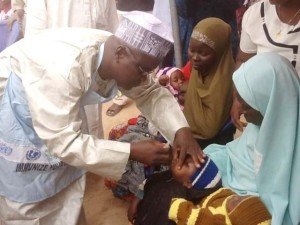 In a bid to tackle the menace and spread of the Cerebrospinal Meningitis (CSM), the Federal government said it has secured not less than 500, 000 meningococcal vaccines which will be used in Zamfara and Katsina States respectively.
In a bid to tackle the menace and spread of the Cerebrospinal Meningitis (CSM), the Federal government said it has secured not less than 500, 000 meningococcal vaccines which will be used in Zamfara and Katsina States respectively.
Since the outbreak of the disease, in late 2016, Zamfara has experienced the highest number of deaths losing 44 persons while Katsina has lost 32.
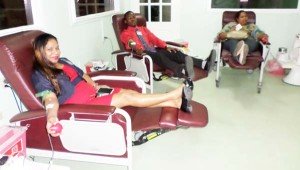 The National Blood Transfusion Service (NBTS) yesterday advised Nigerians to develop the habit of donating blood as such exercise comes with great health benefits.
The National Blood Transfusion Service (NBTS) yesterday advised Nigerians to develop the habit of donating blood as such exercise comes with great health benefits.
Speaking at a Blood Donation event, which was held in collaboration with the WE FM in Abuja, the Deputy Team Leader, Blood Recruitment Department, Mr Peter Ehige said while too much blood causes accumulation of excess iron in the body, donating the blood makes way for the bone marrow to produce fresh red blood cells. Ehige also pointed out that routine donation of blood is one best way to shed weight, as the donor is able to burn good amount of calories.
 The Chief of Health, UNICEF, Nigeria, Mr John Agbor, made the assertion in an online interview with the News Agency of Nigeria (NAN) in Lagos in commemoration of the 2017 World Malaria Day.
The Chief of Health, UNICEF, Nigeria, Mr John Agbor, made the assertion in an online interview with the News Agency of Nigeria (NAN) in Lagos in commemoration of the 2017 World Malaria Day.
Agbor said the organisation was working together with the Federal Ministry of Health and other partners to ensure that such services respond to their basic needs, including prevention, diagnosis and treatment of malaria.
More...
 The Katsina state government is to spend N400 million on the implementation of the World Bank sponsored health programme of the Save One Million Lives project. Hajiya Mariyatu Usman, the state commissioner for Health, announced this during a sensitization visit to the Emir of Daura, Alhaji Umar Farouk, on Thursday.
The Katsina state government is to spend N400 million on the implementation of the World Bank sponsored health programme of the Save One Million Lives project. Hajiya Mariyatu Usman, the state commissioner for Health, announced this during a sensitization visit to the Emir of Daura, Alhaji Umar Farouk, on Thursday.
She said that the state would use the money for the promotion of the health of one million pregnant women and children under five years.
World Malaria Day: Nigeria loses 150,000 lives, N1.1 trillion yearly, says WHO
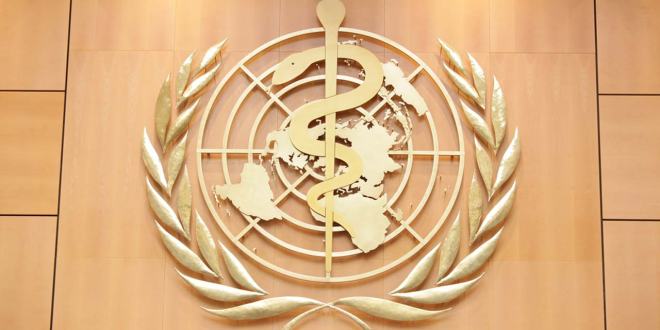 Today is World Malaria Day (WMD). The World Health Organisation (WHO) yesterday declared that despite the substantial gains in malaria responses, the disease has remained a major public health threat.
Today is World Malaria Day (WMD). The World Health Organisation (WHO) yesterday declared that despite the substantial gains in malaria responses, the disease has remained a major public health threat.
The WHO at an event in Nairobi, Kenya, said the global tally of malaria reached 429,000 deaths and 212 million new cases in 2015, with one child dying from malaria every two minutes. The WHO in a report released yesterday titled “Malaria prevention works: Let’s close the gap” showed critical gaps in prevention coverage, particularly in sub-Saharan Africa.
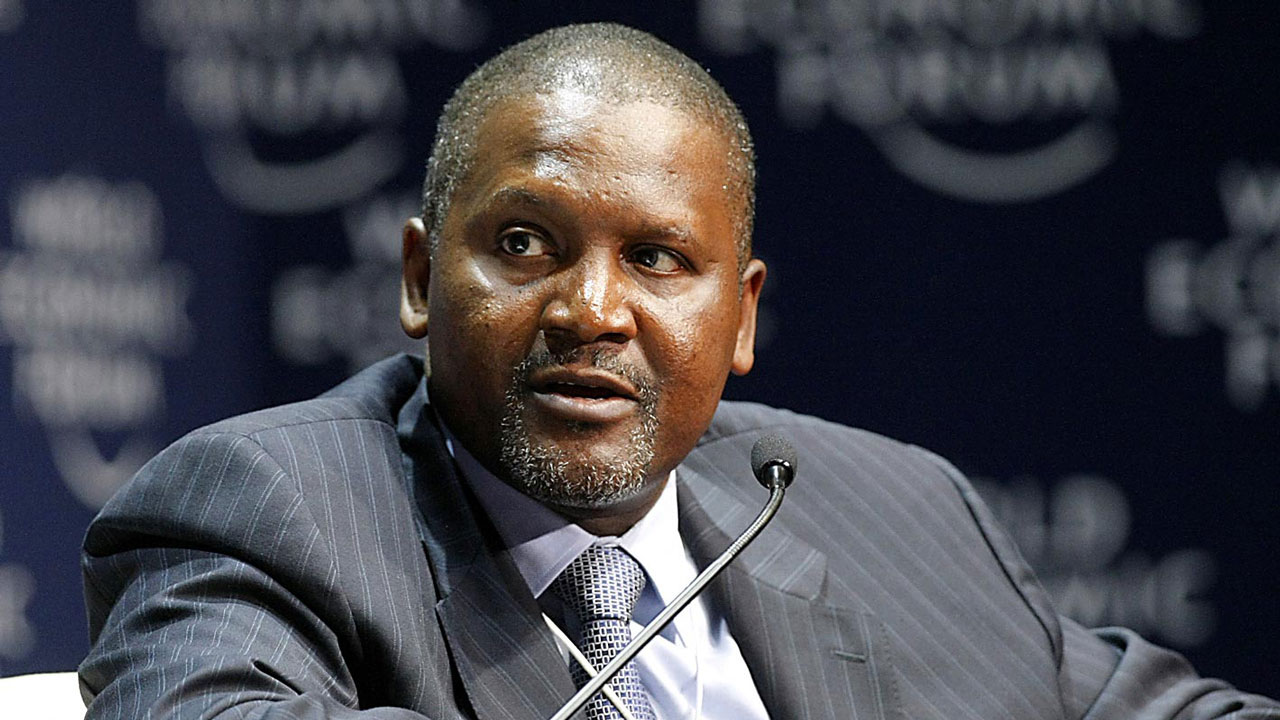 This week, more than 138,000 vaccinators will fan out across five African countries in the Lake Chad area in a push to eliminate polio in Africa and rid the world of this terrible disease forever.
This week, more than 138,000 vaccinators will fan out across five African countries in the Lake Chad area in a push to eliminate polio in Africa and rid the world of this terrible disease forever.
They will take boats across fast-flowing rivers, ride jeeps along sandy ravines, walk crowded street in towns and cities and navigate cramped quarters of refugee camps to ensure that every child is immunized. Traveling for hours a day, these dedicated women and men will visit children in homes, schools, train stations, and transit points across Nigeria, Niger, Chad, Cameroon, and the Central African Republic.
 The Federal Government on Tuesday challenged the Nigerian medical doctors in the Diaspora to use their knowledge and expertise to develop the nation’s health sector. The Senior Special Assistant to the President on Foreign Affairs and Diaspora, Mrs Abike Dabiri-Erewa, gave the task when the Association of Nigerian Physicians in America (ANPA) visited her in Abuja. The association was led by its President, Dr Johnson Adeyanju. The presidential aide also challenged the Diaspora working in the health sector to build a world class hospital in the country as it was done by their counterparts in Ethiopia. “Nigeria is blessed with human and natural resources and we commend you for what you have been doing.
The Federal Government on Tuesday challenged the Nigerian medical doctors in the Diaspora to use their knowledge and expertise to develop the nation’s health sector. The Senior Special Assistant to the President on Foreign Affairs and Diaspora, Mrs Abike Dabiri-Erewa, gave the task when the Association of Nigerian Physicians in America (ANPA) visited her in Abuja. The association was led by its President, Dr Johnson Adeyanju. The presidential aide also challenged the Diaspora working in the health sector to build a world class hospital in the country as it was done by their counterparts in Ethiopia. “Nigeria is blessed with human and natural resources and we commend you for what you have been doing.





